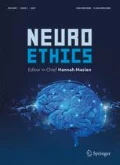Notes
The extent of the influence can be seen in my Willing, Wanting, Waiting (Oxford: Clarendon Press, 2009).
The most influential counterfactual account is due to David Lewis, ‘Causation’, Journal of Philosophy, 70 (1973) 556–67, reprinted with post script in his Philosophical Papers Vol. II (New York: Oxford University Press, 1986). For subsequent work see John Collins, Edward Hall, and Laurie Paul, (eds.) Causation and Counterfactuals (Cambridge, Mass: MIT Press 2004). A recent development understands the counterfactuals in terms of interventions; see Judea Pearl, Causality (Cambridge: Cambridge University Press, 2000) and James Woodward Making Things Happen (New York: Oxford University Press, 2003) for the account, and the papers collected in Alison Gopnik and Laura Schulz (eds.) Causal Learning (New York: Oxford University Press, 2007) for evidence of its psychological applicability.
Even in their past tense usage there is good reason to say that counterfactuals with true antecedents can be true. It is just that it would normally be misleading to utter them when we can utter something more informative: that I did press the red button and so did get the greater reward. Where we do not yet have this knowledge, it is quite acceptable to utter them. ‘If she had pressed the red button she would have got the greater reward’ reasons the detective; ‘And she did get the greater reward, so I conclude that she did press the red button’.
For a detailed examination of the argument as the Stoics faced it, see Susanne Bobzien, Determinism and Freedom in Stoic Philosophy (Oxford: Clarendon Press 1998).
Author information
Authors and Affiliations
Corresponding author
Rights and permissions
About this article
Cite this article
Holton, R. Response to ‘Free Will as Advanced Action Control for Human Social Life and Culture’ by Roy F. Baumeister, A. William Crescioni and Jessica L. Alquist. Neuroethics 4, 13–16 (2011). https://doi.org/10.1007/s12152-009-9046-8
Received:
Accepted:
Published:
Issue Date:
DOI: https://doi.org/10.1007/s12152-009-9046-8

